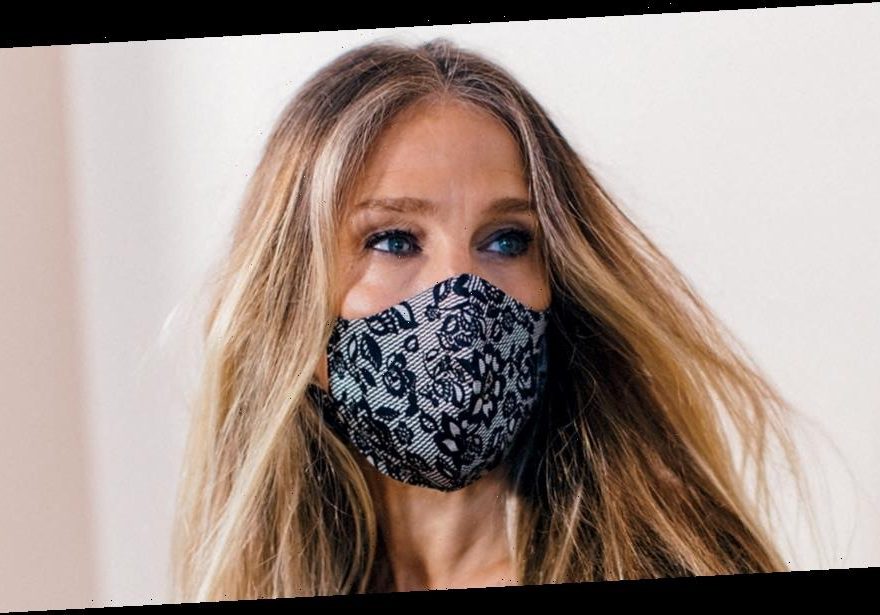One of my most vivid memories of my life as a theater actor and theatergoer was on Sept. 13, 2001. Broadway had reopened after a two-day break from the most terrible day for New York City, and at the end of “The Producers,” the entire cast sang “God Bless America.” It is so moving to remember now, in part because the crisis we are living through today is so different. It’s not just that there was such unity then — it’s also that there was a beginning, a middle and an end to the tragedy. The current crisis New York is living through is a purgatory that is very unfamiliar, one that lingers on with a painful uncertainty. Sept. 11 was unthinkable, but we could walk ourselves through the grief and, crucially, grieve collectively. Nothing before has stopped lives, jobs and the economy like this. And the one thing I keep forcing myself to remember is that I can’t go to the theater to get through it.
When I’m not working, the theater and the ballet is where I go, to connect and to be inspired. That possibility is missing now, and we need it more than ever. We need the escapism that live theater has always given us so beautifully, to be with our fellow man in the audience, laughing and weeping and finding something entirely new to connect with. As an audience member, you’re part of something together, a communion. Any actor has experienced that off night: a not-so-engaged audience, which has always confounded me, as it feels a collective decision (and rather a mystery, as you hope you are performing at the same level with the same conviction every single performance). But a good audience is a special and memorable few hours. It’s a gift. A spirited and enthralling volley. It is sustenance. To be a part of that, experiencing the stories of people so different from ourselves and hearing the songs that make us hum as we leave the theater — frankly, we couldn’t need all of that more.
This isn’t just New York’s problem: I feel terrible about regional theaters, like the Cincinnati Playhouse, which I grew up attending. But New York especially needs theater because so many New Yorkers need theater — the thousands of people employed directly and indirectly by the industry, doing collateral work, from the servers at the surrounding restaurants to the people responsible for dry-cleaning costumes. Theater is the way we induce visitors to come to our city and plan those special afternoons and evenings, which keep such a vast web of my fellow citizens employed and afloat. All the people I know and all the people I don’t know who are out of work need theater for the rent, and the mortgage, and children’s educations — all the countless “ands” that are creating so much anxiety across the city and the nation.
I was supposed to have spent this spring and summer onstage in Neil Simon’s “Plaza Suite.” My makeup is still sitting there at the Hudson Theatre — so are my speakers and my book. At least we cleaned out the fridge. Any theater professional can look back to March 9, 10 and 11 and recall those rumblings; I remember looking out into the house during our tech rehearsals and wondering, “Who’s talking? Why is John Benjamin Hickey talking to the stage manager?” You felt like you had something looming in front of you, something you didn’t want to hear. We realized by that Wednesday that it was inevitable, but we thought we’d be back in two weeks. We also assumed the government would step in: We couldn’t have known the economic and personal devastation for so many in the absence of action.
Now, I am enormously hopeful, but we all know to be realistic about the timing. We don’t marry ourselves to a reopening date. Theater presents some specific and tough challenges — you don’t want audience members to feel they have to monitor themselves, as the comfort level is everything. Opening theaters without masks seems much further away. But I’m encouraging people to come back to New York and reinvest in our community. Whether it’s a theater or a small business, you can’t reopen a business until you have the patrons there — it’s a psychological thing. And I believe it’s incumbent upon people who’ve had success in this city to reinvest, to come home.
I am seeing this in the West Village, where I’ve lived for 28 years and where I run a store that has happily seen more traffic lately. Over the weeks after Labor Day, I have come to feel really encouraged by signs of life. I’m feeling that more people are really willing to stick it out, and that feels like proof of something elemental in our city.
While it’s impossible to know what’s going to happen with theater, it’s clear that what comes ahead will be different from what came before for reasons totally unrelated to COVID-19. Part of why I’m eager for its return is the sense of a cultural shift that was already underway and so necessary and important, with new voices, new points of view and new investment in the theater from performers and the audiences.
That can perhaps marry with some familiar names, and the happy collision creates an excitement that wasn’t necessarily there before. Audience members who feel their stories haven’t been told onstage can know that’s going to change, and that their stories will coexist a few doors down from the entire history of theater. Something a veteran theatergoer might never have seen coming coexists on the same block as revivals of Neil Simon and “The Music Man,” with a whole creative universe in between. Those who have missed attending plays can revive a cherished tradition, and a previously untapped audience can start a new one.
Source: Read Full Article
